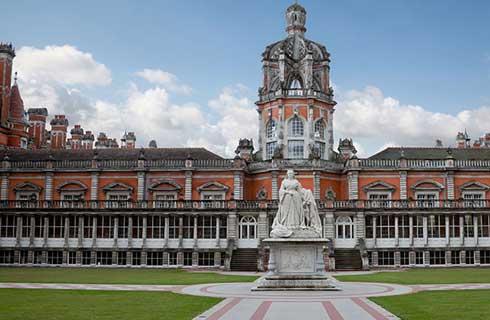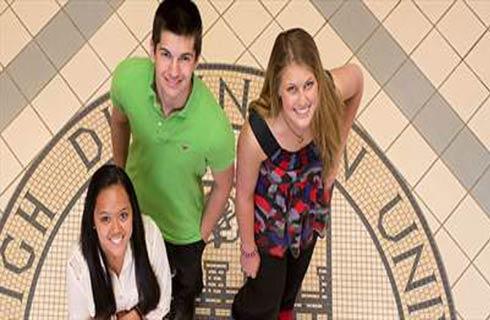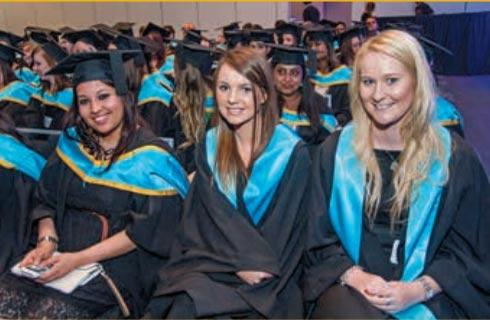环境生物学学士
Bachelor of Environmental Biology

学历文凭
Bachelor Degree

专业院系
Faculty of Science

开学时间

课程时长

课程学费

国际学生入学条件
Applicants must have completed an Australian Year 12 qualification, Australian Qualifications Frame Diploma, or equivalent Australian or overseas qualification at the required level.
IDP—雅思考试联合主办方

雅思考试总分
6.5
了解更多
雅思考试指南
- 雅思总分:6.5
- 托福网考总分:79
- 托福笔试总分:550
- 其他语言考试:PTE Overall 58
CRICOS代码: 079561C
申请截止日期: 请与IDP顾问联系以获取详细信息。
课程简介
Defend Earth’s precious native biodiversity, environments and ecosystems and help shape a better future for all.With a Bachelor of Environmental Biology from UTS, you'll be ready to join the front line and find innovative solutions to address climate change, the biggest issue of our time.You'll build vital scientific and professional knowledge, study alongside leading researchers and academics, and learn in labs and outside the classroom with hands-on 'muddy boots' field sessions in some of Australia's most beautiful natural environments.This program will comprehensively prepare you for an exciting and fulfilling career in environmental science, where you'll be the guardian of our planet's precious species, environments and ecosystems.You'll commence your studies with foundational science units, which will build your scientific understanding and skills in areas like the biosphere, nature and evolution, scientific inquiry and data analysis, building a toolkit of technical and professional skills.
相关申请
 预科
预科 奖学金
奖学金 实习机会
实习机会 在校学习
在校学习 跨境学习
跨境学习 校园授课-线上开始
校园授课-线上开始 在线/远程学习
在线/远程学习
学校排名

世界排名196
数据源:泰晤士高等教育世界大学排名
关于悉尼科技大学

悉尼科技大学(UTS)是世界排名前100的大学之一(QS 2025),对于任何希望提升职业前景并在充满活力的环境中学习的学生来说,这都是一个很好的选择。UTS的学位包括实地考察、案例研究和其他实践经验。学科与行业相结合,为学生提供相关技能。研究项目将学生与所在领域的顶尖人才联系起来。作为一所高级研究型大学,学生可以向在各自行业提供丰富经验的专家学习。该大学提供相应的设施,其空间旨在模拟所有学院学生的真实工作环境。UTS位于悉尼市中心,悉尼是世界第六大学生城市(QS 2025)。在这里,学生们可以轻松地在学习、工作和休闲之间切换。UTS就在中央车站旁边,所以学生们可以跳上火车或公共汽车在城市里四处逛逛,享受悉尼提供的一切。UTS提供: 国际学生支持中心 英语语言与学习支持服务 职业服务 医疗和心理健康支持 住宿支持 180多个学生俱乐部
本校相关课程

全球研究学士
学历文凭
Bachelor Degree
开学日期
课程费用总额


信息技术科学学士学位
学历文凭
Dual Degree
开学日期
课程费用总额


网络工作研究生证书
学历文凭
Graduate Certificate
开学日期
课程费用总额


音乐与声音设计学士国际研究文学士
学历文凭
Dual Degree
开学日期
课程费用总额


音乐和声音设计学士学位
学历文凭
Bachelor Degree
开学日期
课程费用总额


室内建筑设计学士学位
学历文凭
Bachelor Degree
开学日期
课程费用总额

其他相关课程

理学学士(荣誉)生物医学
 德蒙福特大学
德蒙福特大学泰晤士高等教育世界大学排名:601
学历文凭
Bachelor Degree with Honours
开学日期
课程费用总额


理学硕士-分子和细胞生物学(研究)
 怀卡托大学
怀卡托大学学历文凭
Masters Degree (Research)
开学日期
课程费用总额


生物医学硕士
 奥克兰大学
奥克兰大学学历文凭
Masters Degree (Research)
开学日期
课程费用总额


理学学士(荣誉)生物医学
 布里斯托大学
布里斯托大学泰晤士高等教育世界大学排名:81
学历文凭
Bachelor Degree with Honours
开学日期
课程费用总额


PhD in Immunological and Cellular Strategies in Metabolic Disease (King's and Technische Universität Dresden)
 伦敦国王学院
伦敦国王学院学历文凭
Ph.D.
开学日期
课程费用总额


Master of Philosophy in Biological Sciences
 埃塞克斯大学
埃塞克斯大学泰晤士高等教育世界大学排名:301
学历文凭
Masters Degree (Research)
开学日期
课程费用总额





















 澳大利亚
澳大利亚




